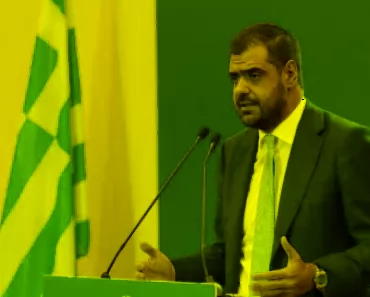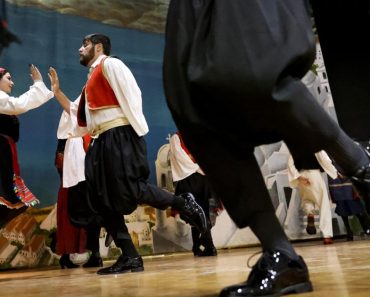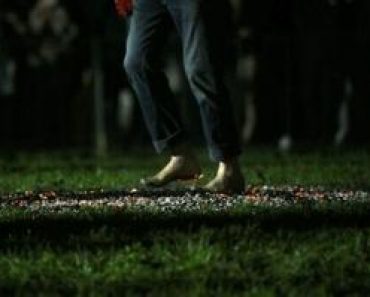Europe’s biggest musical competition returns to its birthplace, Switzerland. Eurovision 2025 is to be hosted in Basel, at the St Jakobshalle indoor stadium, 69 years after the first historic contest was held in Lucerne in 1956. The 37 delegations have been in Basel since last week for intensive rehearsals ahead of the two semi-finals on May 13 & 15 and the grand final on Saturday 17 May. Greece will be competing in the second semi-final, represented by Klavdia singing “Asteromata”. The betting caught fire after the first technical rehearsals, with punters revealing which countries they think will receive golden tickets to the final, and which acts have a shot at winning come Saturday. Of course, the competition always has its share of twists and turns and no one can be sure of the final outcome. According to the bookmakers, Sweden is the favorite for the win with KAJ and their humorous song “Bara bada bastu”, which celebrates Finnish sauna culture. The bets made to date put Austria in second place with JJ (Johannes Pietsch) and “Wasted Love”, a song about unrequited love and the pain it brings. France is expected to occupy the third step on the podium with Louane performing “Maman”, a deep and personal hymn to maternal love.
And Greece?
Even though the odds are against the Greek delegation reaching Saturday’s final, Klavdia seems to have stolen the show in Basel from the very first rehearsal, with the set design for the performance reinforcing the narrative of separation. Dressed in a long black dress covered in glittering elements to resemble a starry sky (an outfit curated by Deux Hommes), the young performer begins her performance on a pier. Her movement, as she heads toward the rock that stands upon the stage, symbolizes the shining path every human being blazes toward the light. The presence of a second person combines with the movement of the whole set, along with the LED walls showing a burning tree, to suggest the separation that “Starry-eyed Girl” is all about.
“Every time I’ve watched Eurovision in the past–and I never miss it–, I’ve imagined myself on the stage. Which adds to the excitement… and the stress,” Klavdia says just before she leaves for Basel, adding that “Of course, I’m going to suffer from stage fright, but the experience is so huge and so unique, I’ll find a way to manage it”. From the start, people have been worrying that the Greek lyrics won’t go down well with the international audience. But that’s not a foregone conclusion, because there have been numerous occasions when an act that decided not to sing in English has actually done well, or even won the competition. Addressing the issue, Klavdia stressed that the factor which will determine whether she can get “Asteromata” across to a European audience is the stage show and presence. “It’s not a particular point in the performance. It’s getting the whole thing right live–that’s what will get the meaning of the song across to non-Greek-speakers. If one part doesn’t work, it will be the domino that leads to everything going wrong. If the show we’ve prepared works in terms of the performance and the set, then I’m confident the audience will get the vibe and energy of ‘Asteromata’, even if they don’t understand the lyrics.”
Fokas Evagelinos is the man who came up with the concept for the performance. “It’s great that Greek State Television (ERT) opened the competition up this year and young acts were able to compete; I’ve been with other delegations in the past, but it’s so important we’re welcoming to new ideas. Klavdia is a young person with opinions, and she’s committed to what she does. It is an honor and a pleasure to work with her. And I absolutely adore the song. She’s going into the competition with Greek lyrics, which presents me with a challenge, too, because I have to help communicate what we’re trying to say. Arcade have written a traditional song with strong elements of electronica. So I have to make sure the visuals strike a balance between tradition and modern technology, and that the sound of the song matches the look of the performance, without straying from the path of a song, a voice and a story to be told. Because I always work by telling a story,” he says.
For their part, as they prepare to depart for Basel, Arcade, the creators of the song, declare themselves pleasantly surprised by the positive reactions on social media. “To tell you the truth, we didn’t expect it. It seems that the song’s emotions, which Greeks will definitely be able to key into, because they understand the language, is getting across to non-Greeks by a different route.” Because “Starry-eyed Girl” is about the ways of the heart–ours as much as hers. The song isn’t looking back–it’s peering deep inside. I think that’s clear from the public reaction. Because what we have here is a girl singing about a lost homeland, and about a loved one she has lost. Still, “Asteromata” isn’t only about loss–it’s also about the things we love, about our roots and what we may fear losing. It’s about everything that makes us feel human and conjures up the bittersweet emotion the song evokes.”
Greece will be the seventh act in Thursday’s semi-final. Maria Kozakou and Giorgos Kapoutzidis will be back to commentate over the three nights, and Jenny Theona will be announcing the 12 members of the Greek jury for the final.
This year’s stage, designed by German set designer Florian Wieder, is inspired by the Swiss mountains and includes LED arches, multi-dimensional screens, and a stage that brings audience and artists closer together. The slogan is “Unity Shapes Love” and the musical identity “See You Radiate”. The show will be presented from Basel by Hazel Brugger and Sandra Studer, with Michelle Hunziker forming a trio for the final. To mark the Song Contest’s return to Switzerland, SRG SSR has arranged for surprise appearances by well-known participants from Eurovisions past. Nemo, Baby Lasagna, Marina Satti, Kaarija, Gjon’s Tears and others will be performing in the intervals between acts.
New rules
After last year’s controversies, the European Broadcasting Union has introduced new rules to ensure transparency and to protect the artists. A code of conduct is now in place for all participants, while a welfare producer is responsible for the care and emotional well-being of the delegations. In addition, only official state flags are allowed on stage, with contestants receiving their flags shortly before the parade. However, the public can wave other flags, as long as they do not violate Swiss law.
The countdown to the 69th Eurovision Song Contest has begun. It remains to be seen which songs will strike a chord with audiences, and whether Basel can manage to remain controversy-free.







